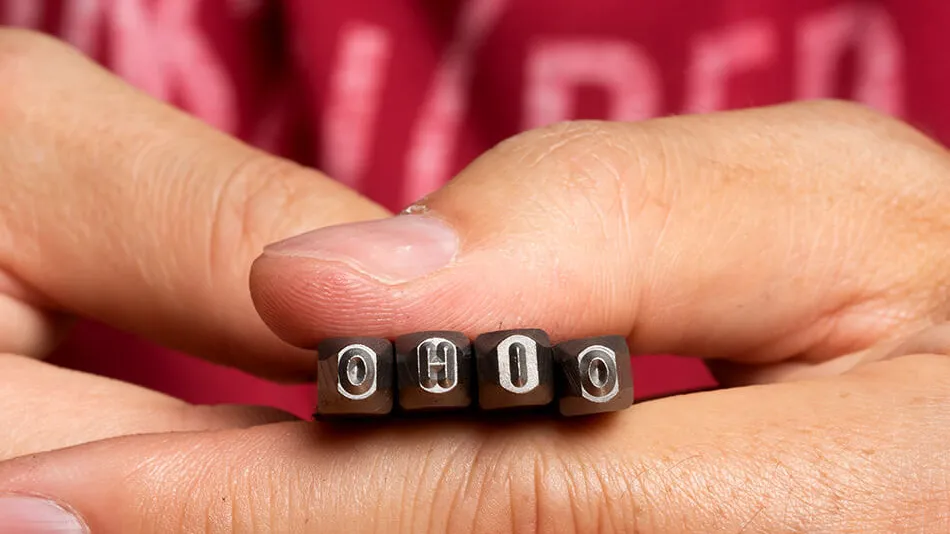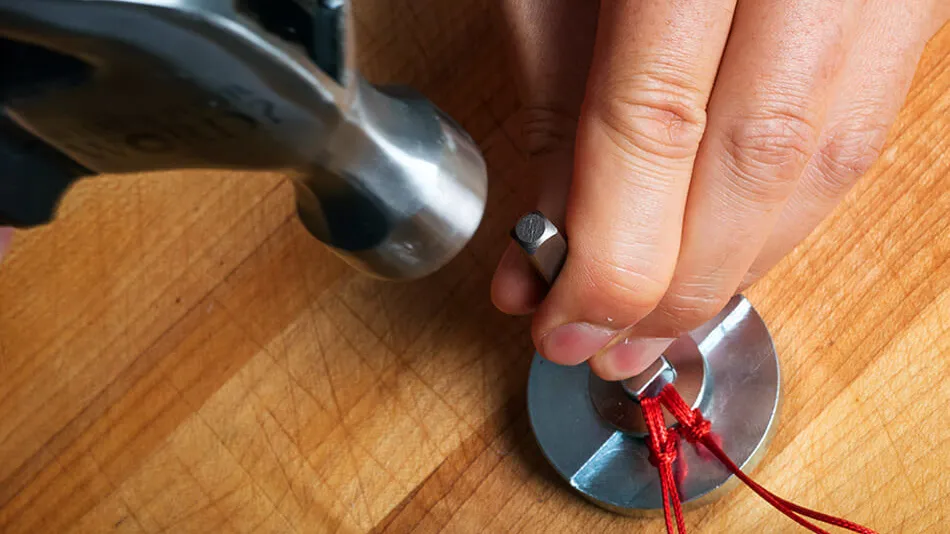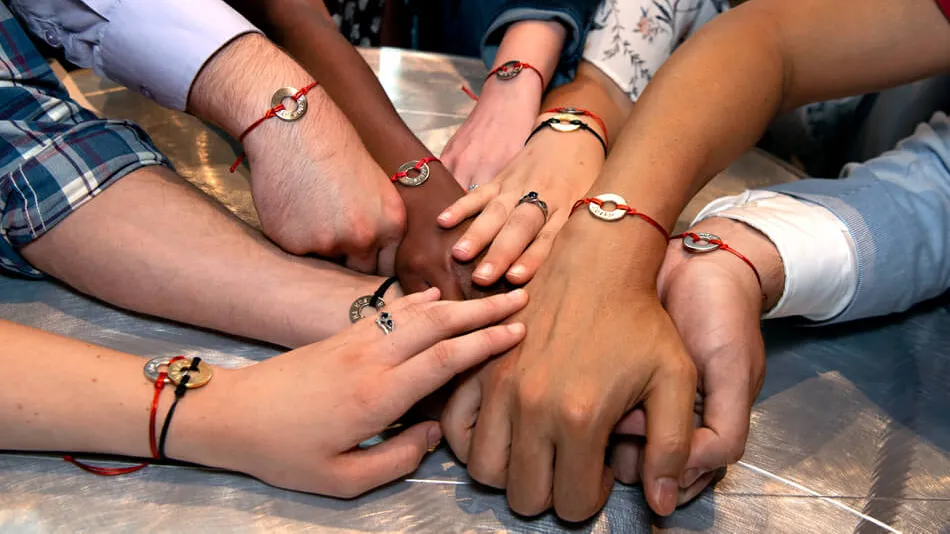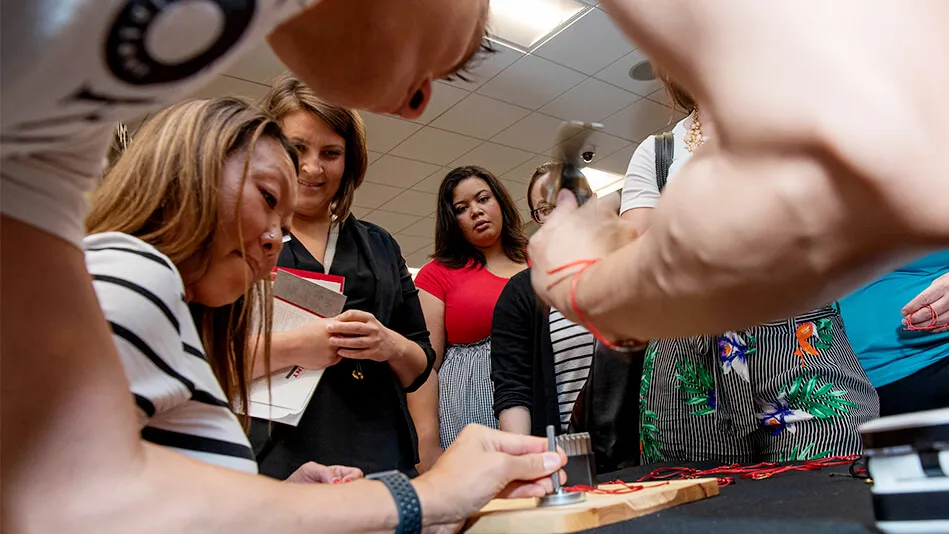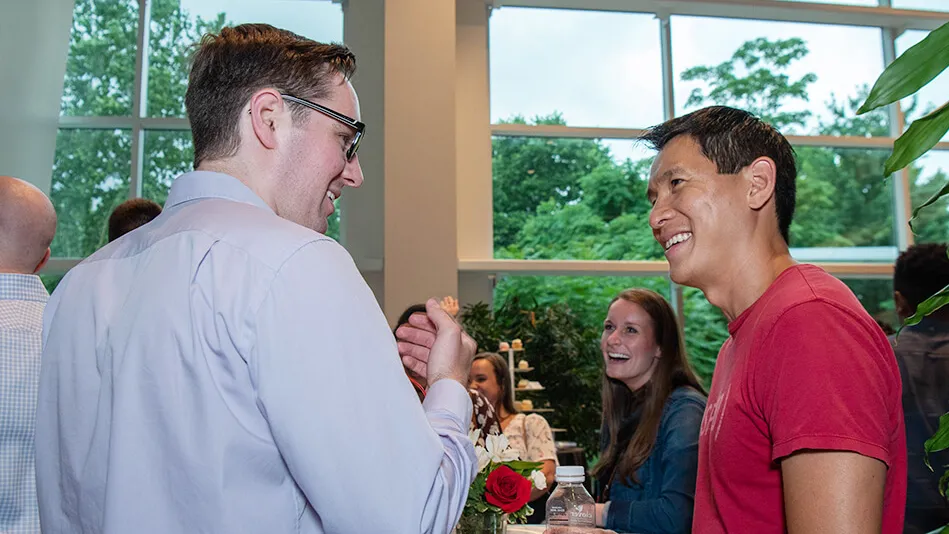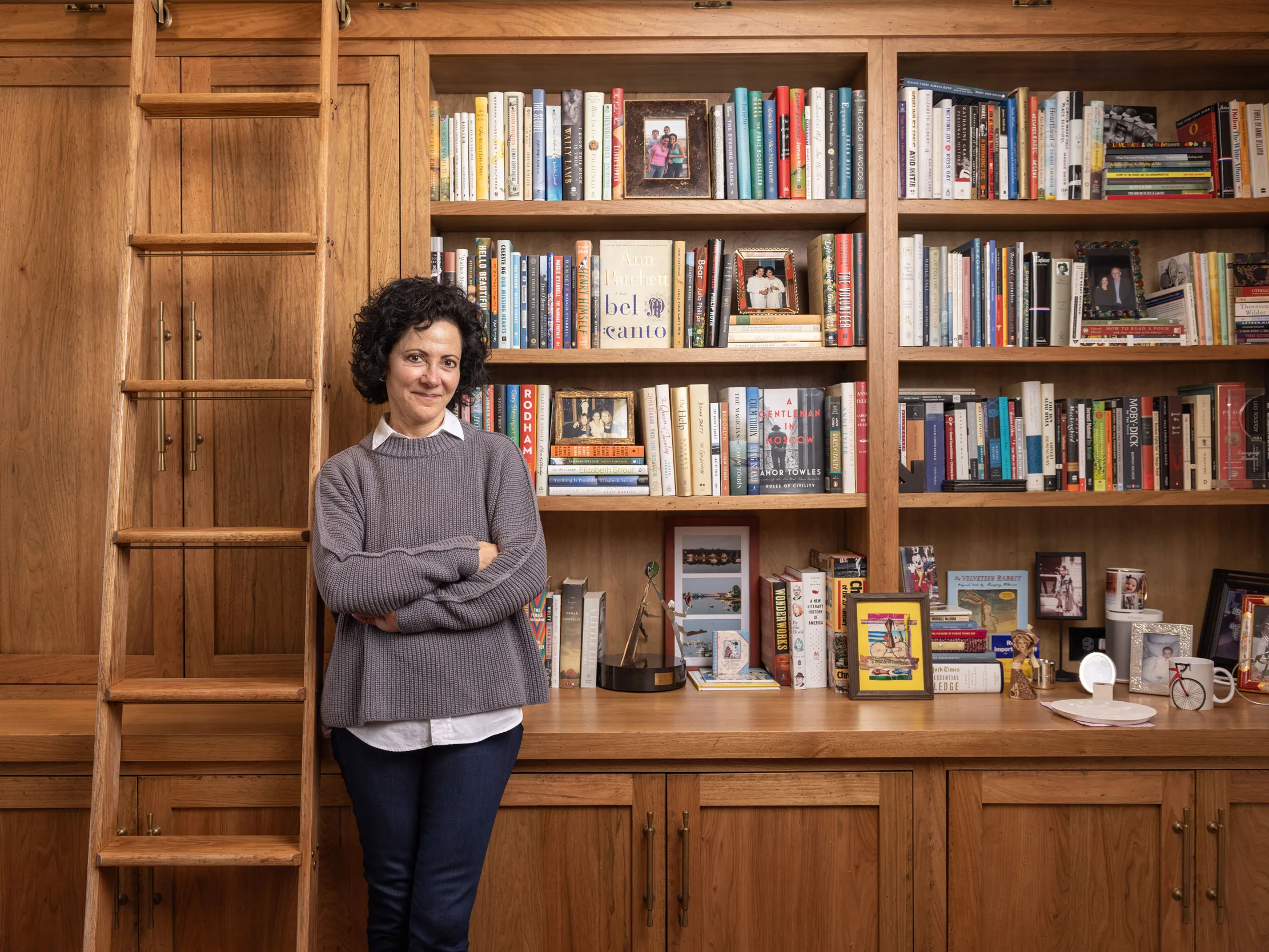Chris Pan ’99: Charting a course all his own
The unconventional career path of Chris Pan has taken him from Cincinnati to Shanghai to San Francisco, from Facebook to spirit-seeking startups, always with intuition as his compass and hard work as his stock-in-trade.
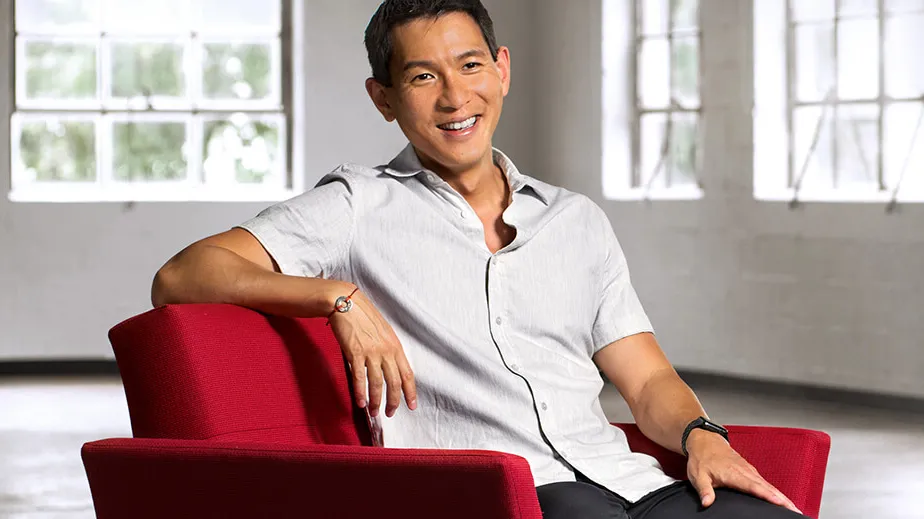
Editor’s note: We pulled this story from our archives to share more about Chris Pan, who will be presenting the commencement address on May 5, 2024.
x
Let’s play a game.
You are whoever you are. We’ll assume you aren’t obscenely wealthy or famous worldwide. Just you, a charming but normal enough person who has managed to score an invitation to a swanky West Hollywood members-only club.
You spot someone in the corner. He is not normal like you. He is Jay-Z, best rapper alive, husband to Beyoncé, net worth knocking on the $1 billion door. And it appears he is enjoying a bit of down time.
You have a lot of options, but really you have only two.
Stay where you are. Or go to him.
What do you do?
If you are Chris Pan ’99, you do not hesitate. You do something that either works brilliantly or fails spectacularly. You walk right up to Jay-Z and say: “Hi, I’m Chris, and I have a gift for you.”
And then you pull out a hammer. (We’ll get back to this later.)
Pan is a man who has made some, shall we say, questionable decisions in his life. Nothing bad, just … debatable. Decisions others might not have made. Decisions such as approaching Jay-Z in a club and dropping out of medical school and quitting a lucrative job on a whim and, well, you’ll see.
So let’s keep playing this game. Follow along. Think about what you would do, and see if your answers would change after you learn where Pan’s decisions have led him.
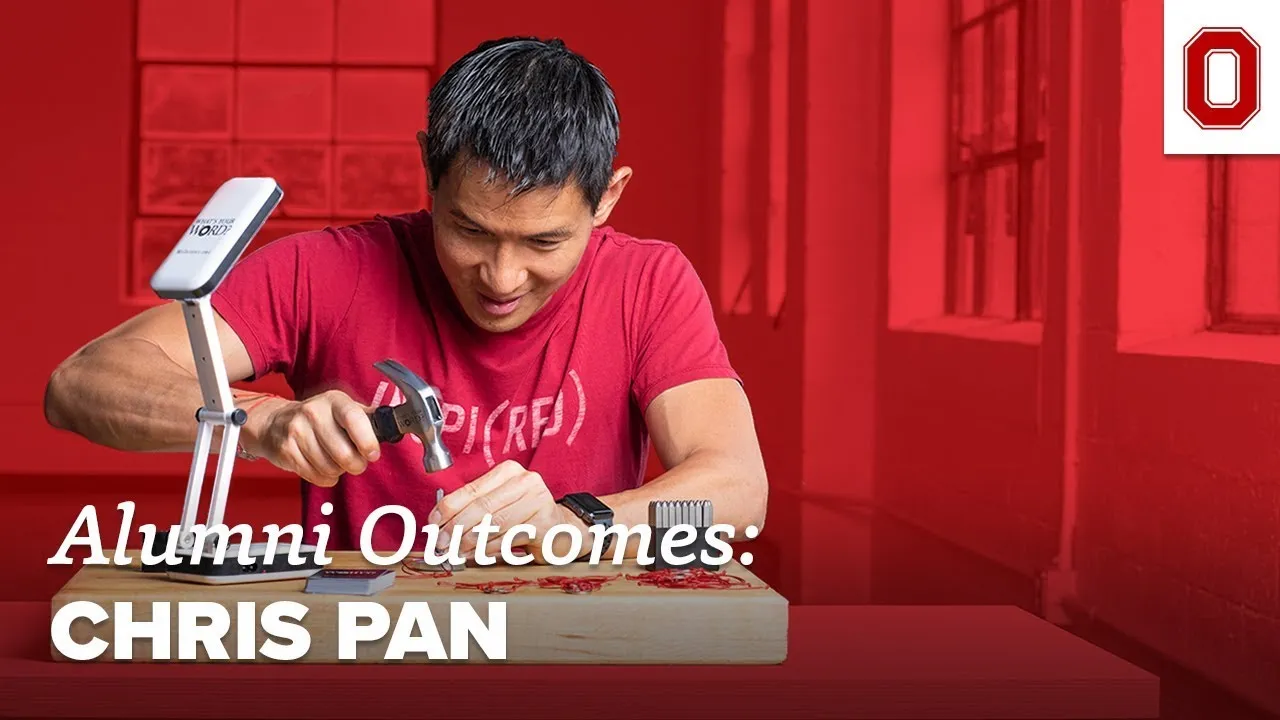
(Video by Andrew Ina)
Pan was born in Taipei, Taiwan, where he lived until he was 7. He was the grandson of refugees, his father quite literally born on the side of the road as his grandmother fled China.
Pan’s parents were determined to build a better life for their family, so when their son was 4, they left him with his grandmother and flew to the United States with two suitcases and a few thousand dollars.
They settled in Cincinnati, where Pan joined them in time. He came over not knowing a word of English and quickly discovered that he was not like his classmates. He looked different. He had few friends. He was terribly unathletic.
“It was challenging,” Pan says. “Me and this other kid from Japan, we were the two outcasts. And then there was everybody else.”
Just as things began to turn a corner (and he finally made it onto a school soccer team), his father was transferred to China. The family, which now included younger brother Dave, packed up.
Pan started over with new classmates at the International School of Beijing. This time, he had the advantage of being bilingual. He fit in better than anyone. He became a leader, chatting up the locals during class field trips, burrowing into any activity that arose: the student newspaper, party planning, DJing, traveling. It was a transformative time. It also was brief.
After two years, the family returned to Cincinnati, and Pan finished high school in Ohio, unremarkably.
“I think I’ve had this series of challenges — I kind of get to the top, and then all of a sudden I’m back at the bottom again,” he says.
But the bottom kept rising. So did the top.
When Pan got to Ohio State, he wasn’t worried about being different. He wanted to absorb as much as he could. He dove into the honors program and the Office of Student Life, became a teaching assistant, became an orientation leader, became a motivational speaker. During his senior year, a professor asked him to teach the self-help book The 7 Habits of Highly Effective People to a class of 400 students.
“I was amazed at what the professors and the staff were asking me to do,” Pan says. “It really stretched me, and it gave me a whole other level of confidence.”
Don Stenta, now the alumni association’s assistant vice president of alumni experiences, was working at the Office of Student Activities at the time and remembers how Pan stood out in his class.
“You could tell even then that he has this spark about really wanting to help people become the best versions of themselves,” Stenta says. “He was also very passionate about how we could be more intentional about building leaders in the student population.”
Back in Cincinnati, his family never knew what Pan would announce next. Another award, another accolade. One day he phoned to say he’d been selected for the 1998 Homecoming Court, and they hadn’t even known he’d applied. The student body ultimately chose Pan as king (20 years ago this fall), which gave him the opportunity to speak at President William Kirwan’s investiture the following year.
“He got bold while he was at Ohio State,” says brother Dave Pan ’08. “He found a voice, and he found a part of himself.”
Their parents wanted Chris to be a doctor, so he fashioned a pre-med major out of honors courses in psychology and biology, two disciplines that linked his interest in the mind and the brain. He graduated in 1999 and took the summer to travel.
That fall, he started medical school at the University of Cincinnati. But he quickly realized he was in the wrong place: He saw his future while watching older students slog miserably through their programs, trying to realize someone else’s dream.
“I think for me — and this has happened multiple times — I just run out of energy,” he says. “It’s like I can’t do it. When I’m into something, I’m super passionate and I have a lot of energy. And when I’m not into it, I just can’t fake it. I just couldn’t do it.”
So he didn’t. He dropped out after three weeks. (“He always moved fast,” his brother confides.)
Pan returned to Ohio State for a quarter of business classes, and when he noticed there was no entrepreneurship club on campus, he started one called the Red Khakis. Now the Business Builders Club, it still meets weekly. He also scored a prized job with global management consulting firm McKinsey & Co. after an on-campus interview, the first Ohio State undergraduate to land such an offer.
He turned it down, of course, hoping to launch his own project. When that failed, he called McKinsey to see if they still had a spot for him.
“They were very gracious,” he says. “They actually took me back.”
Good thing, too. His work at McKinsey helped him get into Harvard Business School, which ultimately led to an internship with PepsiCo, which led to an offer as a digital marketing director for PepsiCo in Shanghai. Pan wasn’t sure he was completely qualified, but he was running out of steam in New York, where he was back at work for McKinsey. He took the job.
OK, let’s get back to the game we mentioned earlier. You’re working overseas, not quite 30, making an annual salary that most people won’t hit in a lifetime. Life is good … except.
You realize you’re basically selling sugar water. After nearly two years, you’re starting to feel weird about it. Maybe a little guilty.
Do you keep at it?
Or quit?
What do you think Pan did?
“Over the holidays, I did some reflection and in January I just came back and said, ‘I’m grateful for the experience, but I’m going to do my own thing.’”
And he tried. For about three months. He had a blast. Until he didn’t. Because being unemployed and wondering whether your job selling sugar water was actually pretty sweet starts to weigh on a person. Pan started getting depressed. He started thinking about what he really wanted: a dream job.
“There was a company that I met the founder of when I was at Harvard. It was Mark Zuckerberg. He was actually in my dorm room. I was helping him brainstorm some ways to make money back in 2004, when Facebook had just launched at Harvard. And I was on Facebook a lot anyway, and I was like, ‘Well, this would be an amazing company to work at. It’s entrepreneurial. They’re making a difference.’”
An aside: Pan has taught his brother a lot of things, but primarily it is that you make your own luck. “He never told me this directly, but it’s what I observed as a younger brother,” Dave Pan says. “When the opportunity is right, you make your own luck, because you’ve put in the work.”
Pan had put in a lot of work, but there was plenty left to do to land a job at Facebook. He reached out to his friends there, and they told him they’d be in touch if they found something that fit. He waited. He researched. One morning he read a story that Facebook had hired a new vice president of marketing, Chamath Palihapitiya, and Pan reached out.
“I wrote him a very brief email and just said, ‘Hey, my name is Chris. This is my background.’ And like three sentences. And then, ‘Here’s how I can help you.’ And I got a response back within a few hours.”
Before long, he was leaving Shanghai for San Francisco. It was 2007, and Facebook wasn’t yet a social media behemoth. It had 50 million users, but its employees were gunning for a billion.
“I thought they were crazy,” Pan says. “But in hindsight, I was like, ‘OK, well, I guess you’ve got to dream big in order to actually achieve some goals.’”
Two noteworthy things happened for Pan at Facebook.
First, the site’s growth was plateauing, so he taught himself the data processing language SQL to see if he could analyze why. He discovered something that now seems intuitive — that users who didn’t have friends gave up on Facebook. That kicked off a number of initiatives to help users find friends, Pan says, and the numbers started to pick up.
The second? He helped Zuckerberg learn Mandarin. Pan facilitated twice-weekly conversations in which Zuckerberg sat with Mandarin speakers to hear various accents and nuances of the language, which he hadn’t been able to learn through a tutor. It worked. By the end of a year, Zuckerberg was able to hold his own with a group of top executives from China.
Final question: When do you quit Facebook?
If you’re Pan, you leave after about four years, in 2012. He went through a difficult breakup, and rather than get a dog or a bad haircut, he decided to change his life entirely. He went to a personal growth retreat and realized that he needed to work on himself spiritually and emotionally. He wanted to help others do the same. He rented a house in Los Angeles and nicknamed it SpiritLab and made it a place where people could gather to paint or meditate or do yoga or make intention bracelets.
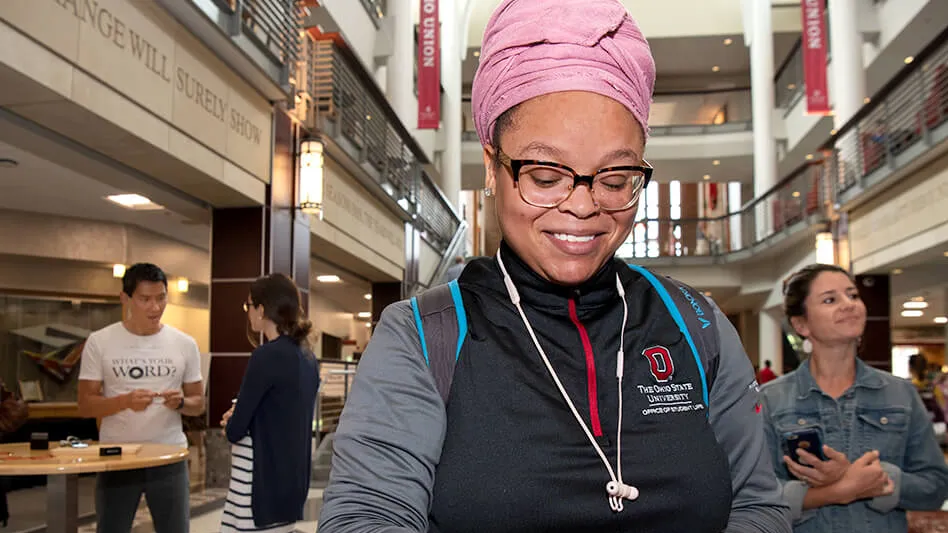
Theater major Nigeria Gould chose URITHI, which means “heritage” in Swahili.
So this brings us, finally, to the Jay-Z story.
People gravitated toward those bracelets. They weren’t anything new — head to Etsy and you’ll be swamped with stamped metal tokens tied to a string — but Pan decided to brand them and make them available beyond his circle. His MyIntent Project was born. Its mission was both terribly simple and emotionally complex.
It was meant to start a conversation. “What’s your word?” the bracelet maker would ask, and the discussion that followed often transcended jewelry.
But it also included jewelry. The maker would stamp the word onto a metal washer roughly the size of a quarter.
That day at the club, Pan handed one of his bracelets to Jay-Z, real name Shawn Carter. It says EDUCATE, to honor the intention of the Shawn Carter Foundation, which supports higher education for underprivileged youth. Carter asked Pan to tie the bracelet onto his wrist.
Beside him, Jay Brown, the CEO of Carter’s entertainment company, Roc Nation, asked for his own bracelet. He wanted SURVIVOR, so Pan pulled out his hammer, and by the time he was done he had an invitation to make his bracelets at Carter’s pre-Grammy Awards brunch. Pan and a team of his friends stamped bracelets for Rihanna and Beyoncé and Kanye West, who ultimately wore his on the cover of Time magazine in 2015.
It was that Time cover that saved MyIntent, incidentally. The project had lost momentum, and Pan was ready to move on. (You’re not surprised, right?)
The cover changed everything. Orders exploded. CEOs bought bracelets for their employees. Pan appeared on “The Today Show.” He hired brother Dave as vice president of marketing, bringing the entire family closer together.
Sometimes the best decisions make themselves.
So this, all of this, is how we arrive on a June morning at the Ohio Union, where Pan has returned to make some bracelets and share his story with fellow Buckeyes. He is lean and relaxed, easy with a smile, chill in that California-meditation-spa kind of way. He doesn’t look it, but he’s two months away from turning 41.
Thwack. Pan has a tiny hammer in his hand. Thwack. It makes a big sound. Thwack. Each strike sends a shock through the Union. Thwack. Heads spin. Thwack. Bystanders flinch. Thwack.
He’s working on a metal washer that says THRIVE, a word that means a lot to Eliza Alpeter, a junior from Hilliard, Ohio. “I’m in therapy,” she tells Pan, “and the moment things changed was when I started thinking about not just surviving, but thriving.”
Pan won’t give advice on when to make a change, or how to make the right decision. It’s personal, he says. Sometimes it’s buried deep. Pan has known when it was right for him. And Alpeter, tired of feeling sad and without a purpose, knew when it was right for her.
“I think the only way really is just to tune into your intuition, your own voice, your own energy levels,” Pan says. “What are you excited about?”
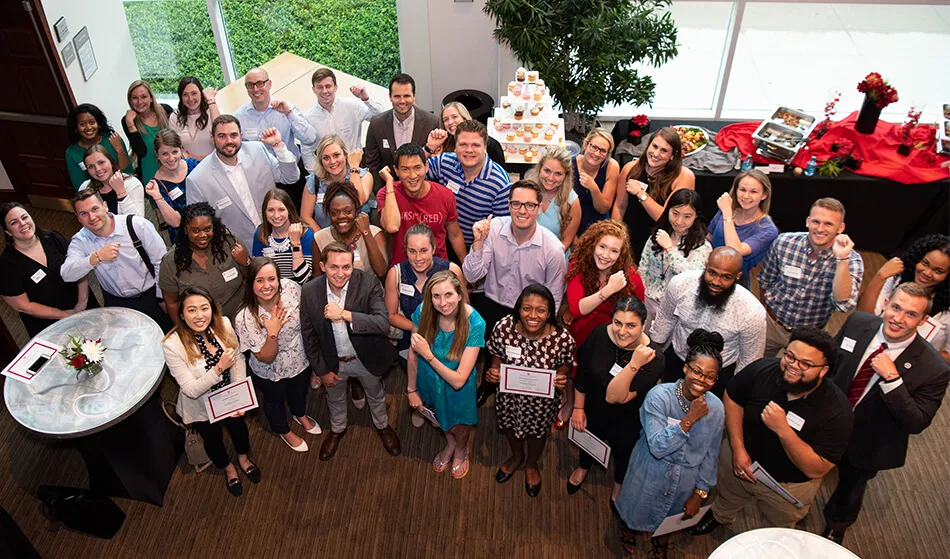
Members of the Young Alumni Academy surround Chris Pan.
In the words of recent grads
Chris Pan asked Young Alumni Academy members to think about words that held special meaning in their lives and had MyIntent bracelets bearing those terms made for each of them. Here, the graduates share their words and inspiration with us.
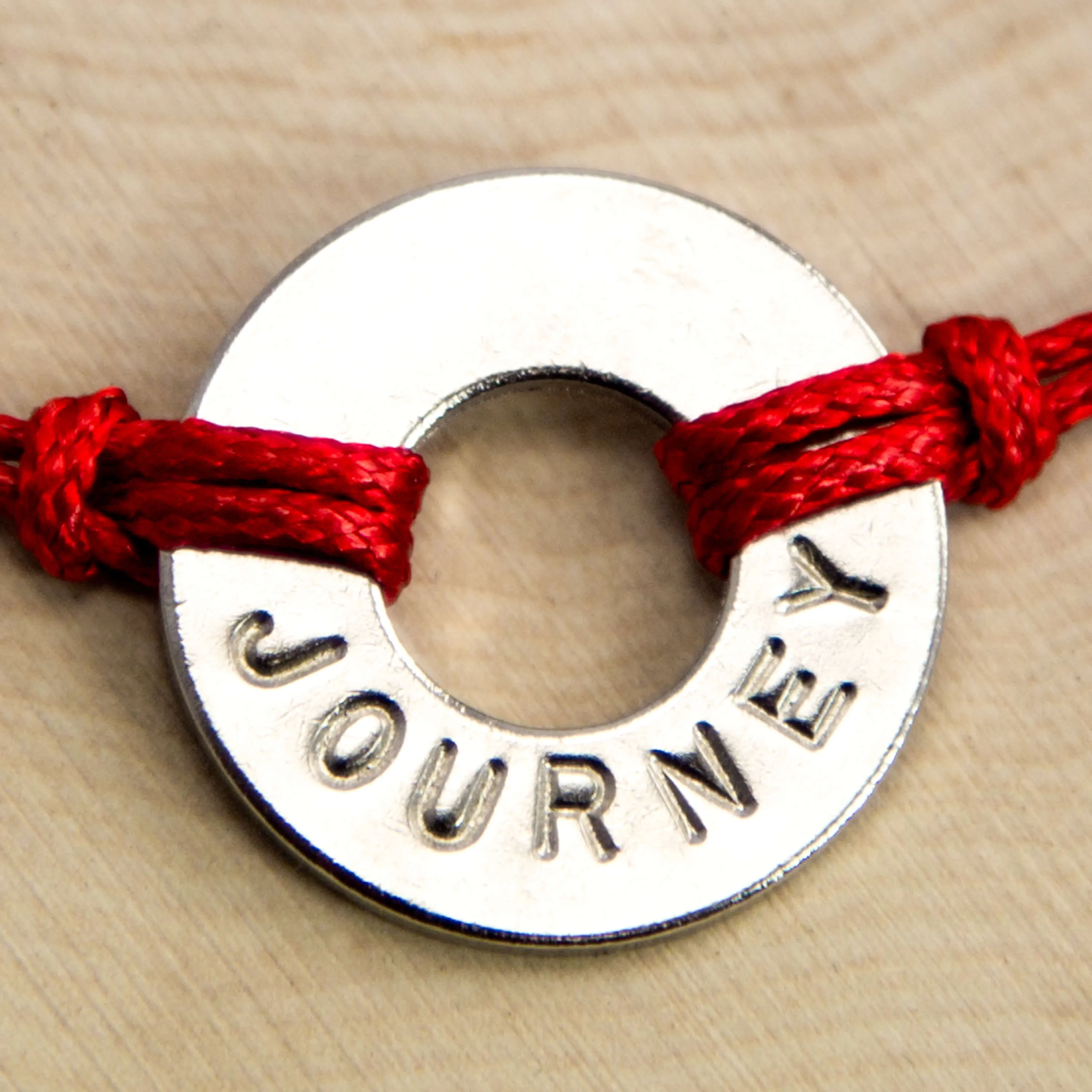
I’ve been fortunate to meet a lot of people who have achieved (in others’ eyes) substantial amounts of success; however, they’re empty in many aspects of their life. Their feedback is always that they wish they would have enjoyed more of the journey, and that this enjoyment would’ve likely led them to be even more successful.
— Josh Whitt ’14
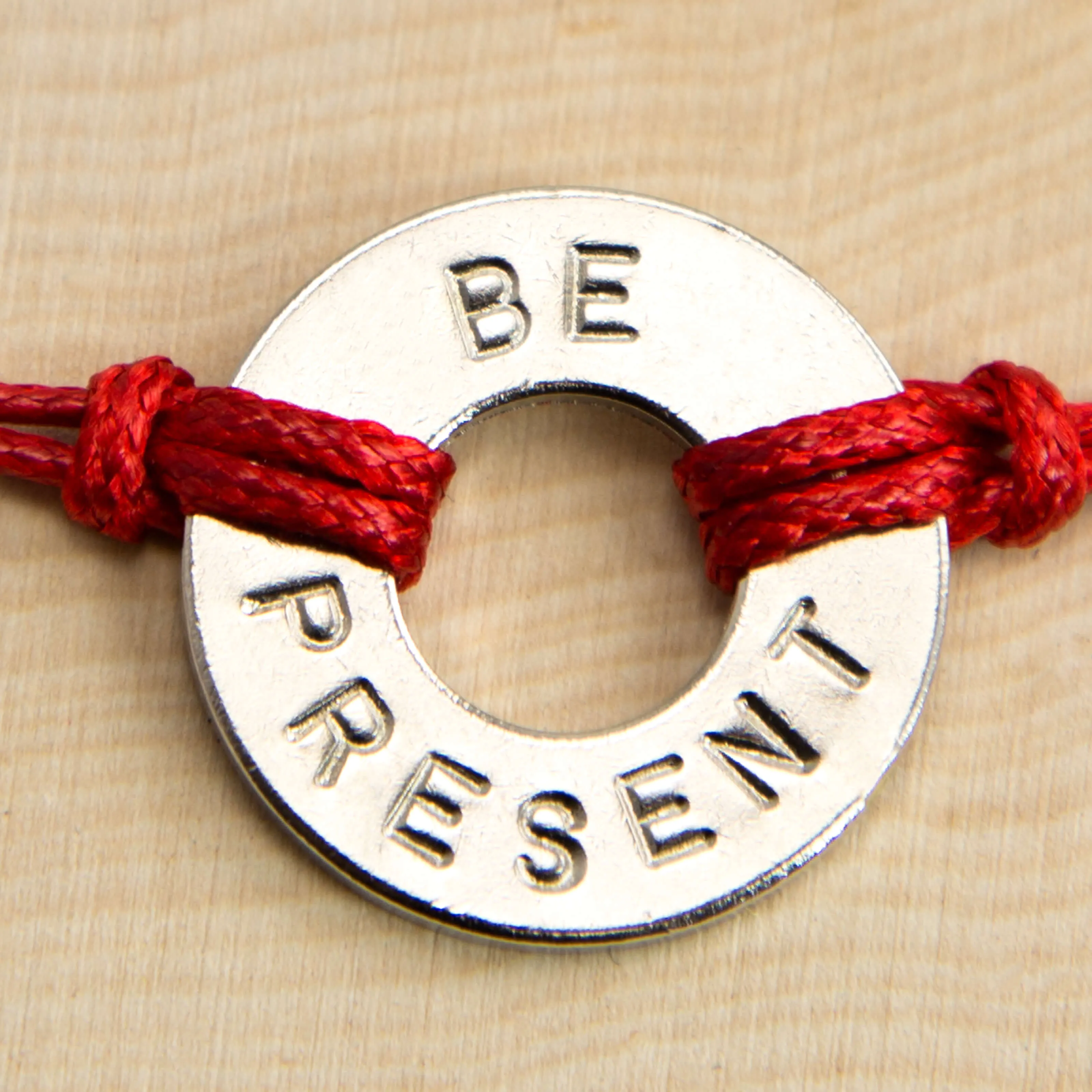
As a young working mom, finding the balance feels impossible most days. I am focusing instead on being fully present with where I am in that moment. If I am at work, I am all in, present and working hard. With my son, I want to be present in the time we have together.
— Marisa Sheldon ’10, ’11 MSW
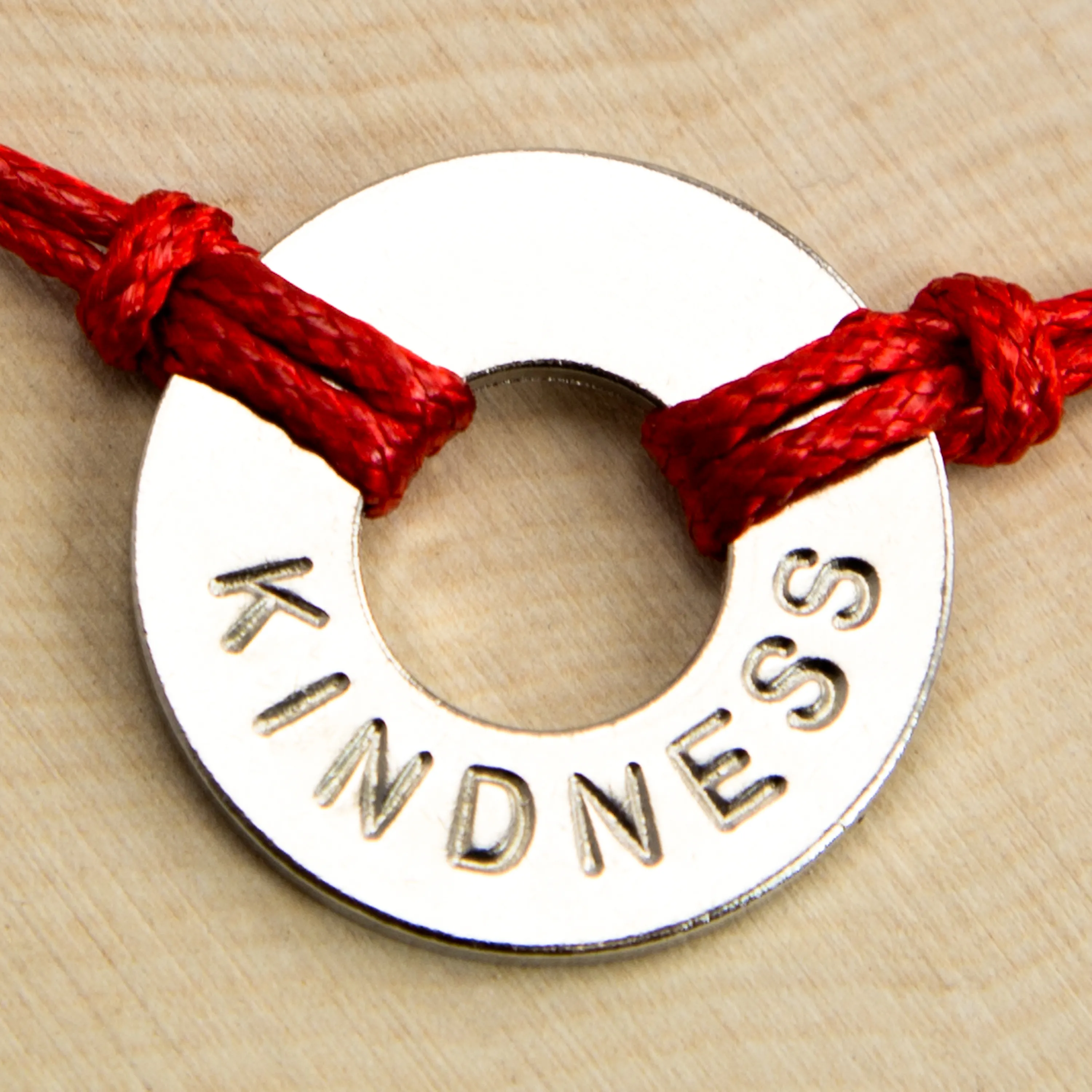
It reminds me to choose challenges and growth over comfort and control. We can all do so much if we just lean into the opportunities in front of us and choose courage over getting things “right.”
— Jenn Chaney ’12, ’14
